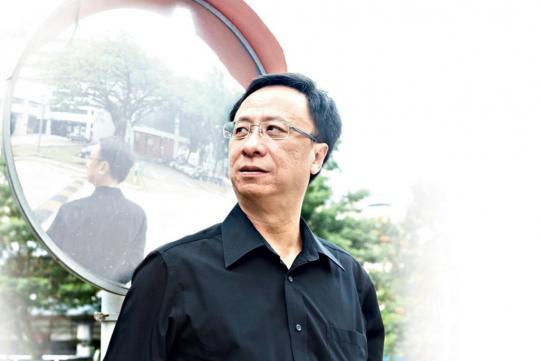Do the right thing
Do the right thing

 Those who held high hopes of a meaningful change to the car ownership landscape, when the Government announced six months ago that it was looking to make the COE system fairer, have the right to be disappointed. After months of deliberation and public consultation, the only change introduced (with effect from February 2014) was a power cap for Category A. In addition to the existing engine displacement limit (up to 1600cc), cars in said category must not produce more than 130bhp.
Those who held high hopes of a meaningful change to the car ownership landscape, when the Government announced six months ago that it was looking to make the COE system fairer, have the right to be disappointed. After months of deliberation and public consultation, the only change introduced (with effect from February 2014) was a power cap for Category A. In addition to the existing engine displacement limit (up to 1600cc), cars in said category must not produce more than 130bhp.
All other proposals, such as a surcharge to discourage multiple-car ownership (which would have resulted in a wider spread of “entitlement” among the population), were thrown into the waste bin. The Government says they are too hard to implement and enforce. In fact, this “too hard to do” reason is used to dismiss a proposal to ban motor traders from COE bidding. It is also used to explain why OMV (open market value) isn’t used to categorise COEs. Using engine power as a proxy to value is “simpler” and “easier”, according to the authorities.
A proposal for a pay-as-you-bid system was also rejected. No move was made to address the feast-and-famine COE supply pattern, either. And despite a clear need to address an anomaly in the commercial vehicle category (heavy vehicle bidders outbidding light vehicle bidders and driving premiums to record level after record level), nothing was done.
It is a sad day that “too hard to do” becomes a blanket excuse for not taking an issue by the horns. It is also downright tragic for a nation that had defied great odds to become what it is today, to succumb to a “can’t do” mentality when faced with a relatively straightforward issue such as COE.
It is sadder still that the only change the Government decided to implement will not be as successful as it hopes it to be. Dealerships will bring in models that meet the power limit, including Mercedes- Benz, BMW and Volvo. Many will resort to diesel engines, which typically have low power ratings but high torque values. And as technology progresses, mass-market brands such as Toyota and Hyundai will roll out high- powered models. Then what?
What about the other suggested changes? Well, most of them can be implemented. If, for instance, a surcharge on subsequent cars is deemed the right policy to pursue, we should just pursue it – levy the surcharge by owner’s name, perhaps. There will, of course, be “leakage”, where buyers buy cars in their relatives’ or friends’ names. But not many people would be willing to be used in this manner – not without monetary incentive, anyway. And if people are caught by passing the surcharge this way, penalise them heavily.
Register the car in a company’s name, you say? Well, just disallow that, and bring back the company registration plate, which used to attract higher levies.
At the end of the day, the surcharge initiative is doable. All it takes is conviction. If it is the right thing to do, do it. If it isn’t the right policy, say so and explain why. Saying it is “too hard to do” smacks of defeatism. The same goes for the other proposals, such as banning motor traders from COE bidding. Yes, it is true that most car buyers have come to rely on car dealers for every little transaction. But if the law says they have to do their own bidding, they will learn to do so – just as they learnt how to apply for a HDB flat. Allowing motor traders to bid means allowing them to “game the system”. It is common practice for firms to lock-in buyers with attractive prices, and persuade them to “top up” when they continually fail to secure a COE.
Sure, consumers can walk away after six unsuccessful bids. But by then, prices elsewhere would have risen, too. They face a lose-lose situation by walking away. Therefore, many will agree to “top up”.
Big players have also been able to move the market, by the sheer number of bids they submit (or do not submit). A company can chase up premiums for five tenders, and then trigger a correction by withholding bids in the sixth. And because they have a pretty good idea how much premiums are likely to fall by, they set their COE rebate levels accordingly. More often than not, motor firms get to gain from a premium correction, and their customers only get a refund on the portion that is below the rebate level.
Our Government also says that in a pay-as-you-bid format, consumers do not pay the quota premium they are willing to pay. The logic is hard to follow. In the first place, the premium that bidders are most willing to pay must be zero. But because they are conditioned to accept a certain premium over a certain period of time, they pay what the market wills them to pay. For instance, when COEs rose steadily from around $20,000 five years ago to $70,000 in recent months, the buying has not stopped. Not because consumers are as “willing” to pay $70,000 as $20,000, but because they have no choice.
The notion of willingness to pay is an economic one. It does not always apply in real life – certainly not for something that is intrinsically worthless, such as a certificate of entitlement.
But we know, it is hard to ban motor traders from bidding. Just as it is hard to tell the rich who have more than one car (who make up one in five car-owning households) that they will have to pay more. Indeed, the right things are always the hardest to do
This article was written by Christopher Tan, consulting editor for Torque.
1copy.thumb.jpg.8d9fb898c1bdc8ee48be52e4aa2ad81b.jpg)


10 Comments
Recommended Comments
Create an account or sign in to comment
You need to be a member in order to leave a comment
Create an account
Sign up for a new account in our community. It's easy!
Register a new accountSign in
Already have an account? Sign in here.
Sign In Now